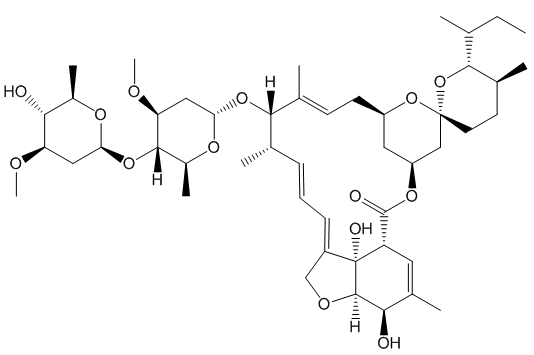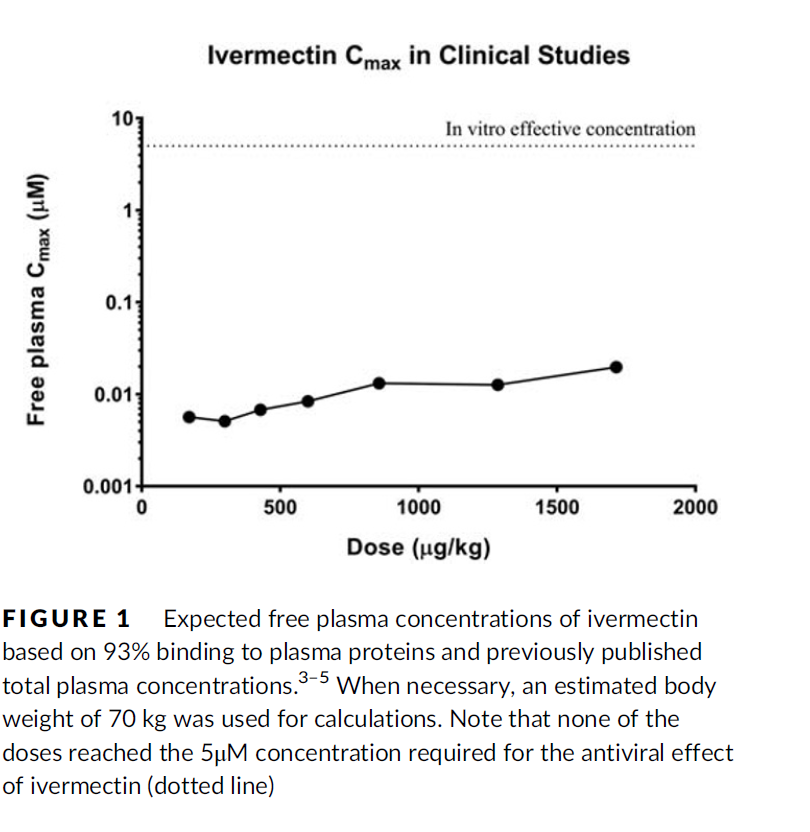
Ivermectin has been touted as a potential antiviral to treat COVID-19 infections. There is no good evidence it is effective.
With the arrival of safe and effective vaccines to prevent COVID-19, bringing what looks like a pathway to a post-pandemic world, I wasn’t sure if it was still worth looking at unproven COVID-19 treatments. After all, it’s been over a year and we have much more knowledge about what actually works to prevent and treat SARS-CoV-2 infections. But amazingly there are still very passionate supporters of treatments that lack any strong evidence of benefit. Ivermectin falls into that category.
Ivermectin has been touted as a miracle treatment for almost as long as the global pandemic has been around, and that enthusiasm remains strong (in some) despite accumulating research that says otherwise. Importantly, there has been significant progress since a year ago in treating COVID-19, including the repurposing of other drugs that have actually been demonstrated to work (e.g., dexamethasone, tocilizumab). In that same amount of time, we’ve also seen drugs demonstrated to be ineffective, like hydroxychloroquine. It may be that the hydroxychloroquine crowd has finally moved on to something else.
Weak evidence for use of ivermectin
Ivermectin (Stromectol) is an anti-parasitic drug. It is used to treat intestinal strongyloidiasis (threadworm, caused by infection from Strongyloides stercoralis) and also onchocerciasis (river blindness, caused by the parasitic worm Onchocerca volvulus, and spread by the Simulium blackfly). There has been interest in ivermectin since the early days of the COVID-19 pandemic, because it was observed that at high concentrations it had antiviral properties against the SARS-CoV-2 virus.
However, there was an important red flag in that finding. A few weeks after the initial finding was published, a short paper appeared in the British Journal of Clinical Pharmacology that described the considerations for using ivermectin as an antiviral. While it acknowledged the antiviral properties of high concentrations of the drug in laboratory (in vitro) experiments, it noted that it would likely not be possible to achieve the same concentrations of the drug in the plasma of the blood, because the drug itself is tightly bound to blood proteins. Even giving 8.5 x the FDA-approved dose (1700mcg/kg) resulted in blood concentrations far below the dose identified that offered antiviral effects:
If a drug can’t reach sufficient levels in the blood or plasma, it will not have any meaningful effects.
The earliest trials were tiny and underpowered to detect anything. One of the more widely cited papers is this one, published in October 2020, which was a chart review (not a randomized, controlled trial) that looked at hospitalized patients treated with or without ivermectin. The authors observed that ivermectin was associated with lower mortality, especially in patients with severe pulmonary involvement. However, patients who received ivermectin were also more likely to receive steroid drugs (which have been proven to reduce mortality from COVID-19), meaning that the use of steroids could have distorted the observed outcomes. The authors correctly called for a randomized controlled trial to validate these findings.
One randomized, prospective trial that appeared subsequently was this one which was published in December 2020. This small trial looked at hospitalized patients in Bangladesh and randomized 72 patients to ivermectin (12mg daily for five days), ivermectin (single dose of 12mg) with doxycycline (an antibiotic) for five days, or placebo. The authors found that viral clearance was earlier in the five-day ivermectin arm, compared to placebo. The trial did not look at any other endpoints other than safety (it was well tolerated), and the authors noted that larger trials would be required.
In March 2021 another randomized controlled trial was published that looked at the use of ivermectin in patients with mild (i.e., non-hospitalized) COVID-19. This was a much larger trial of 476 patients that gave five days of ivermectin 300 μg/kg per day for 5 days, or placebo. (Before you read on, look up 300 μg/kg in the image above.) The researchers found that ivermectin had no effect on the time to resolution of symptoms.
Lest you think I’m cherry picking, I’ll point to a health technology review dated February 8, 2021 that attempted to comprehensively and systematically compile and evaluate all the relevant published evidence for ivermectin, up to January 5, 2021. It found a total of six publications and made the following conclusion:
The primary studies identified in this report including those within the [systematic review] were found to have high risk of bias, thus producing a very low quality of evidence that preclude the ability to draw any strong conclusions as whether ivermectin could reduce all-cause mortality, improve clinical symptoms and hospitalization, and enhance viral clearance in patients with COVID-19. The decision for the use of ivermectin to treat COVID-19 is currently discouraged by the included guidelines due to lack of strong evidence. It is possible that the inconsistency in the observed efficacy of ivermectin in recent human studies was in part due to insufficient concentration of the drug reached in the plasma of patients when the approved dose for parasitic infections was used to treat COVID-19. Well-conducted, dose-response trials are needed to provide reliable conclusions regarding the benefit and harms of ivermectin for the treatment and prevention of COVID-19. Until then, interpretations of existing evidence in this report should be taken with caution.
Even Pharma says don’t do it
Ivermectin is well tolerated, with no fatalities (to date) reported from overdose. In cases of significant exposure to veterinary formulations of ivermectin, with much larger doses, side effects have ranged from rash and headache to more severe effects, like seizures. The FDA recently warned against using ivermectin, noting that some people have been hospitalized after use. The NIH commented on the lack of evidence in February 2021, in its COVID-19 Treatment Guidelines:
There are insufficient data for the COVID-19 Treatment Guidelines Panel (the Panel) to recommend either for or against the use of ivermectin for the treatment of COVID-19. Results from adequately powered, well-designed, and well-conducted clinical trials are needed to provide more specific, evidence-based guidance on the role of ivermectin in the treatment of COVID-19.
Given the reasonable side effect profile at regular doses, and worldwide interest in the drug, you would expect the manufacturer to be enthusiastic, or at least, non-committal about the potential for use. In February, Merck, the manufacturer of ivermectin, made the following statement about its drug.
Company scientists continue to carefully examine the findings of all available and emerging studies of ivermectin for the treatment of COVID-19 for evidence of efficacy and safety. It is important to note that, to-date, our analysis has identified:
- No scientific basis for a potential therapeutic effect against COVID-19 from pre-clinical studies;
- No meaningful evidence for clinical activity or clinical efficacy in patients with COVID-19 disease, and;
- A concerning lack of safety data in the majority of studies.
We do not believe that the data available support the safety and efficacy of ivermectin beyond the doses and populations indicated in the regulatory agency-approved prescribing information.
Consider that carefully. The pharmaceutical company that has the most to gain from the sale of ivermectin is actively discouraging its use to treat COVID-19.
Conclusion: There is no evidence ivermectin can treat COVID-19
The emergence of the COVID-19 pandemic led to widespread interest in repurposing existing drugs to reduce the risk or severity of infections. While some drugs have been successfully repurposed and are now in routine use to treat COVID-19, far more have been tested and found to be ineffective. Anecdotal evidence and hypotheses are great starting points to research. But as evidence emerges, we need to focus on the most rigorous evaluations to inform our decision making. Similar to hydroxychloroquine, there is no convincing evidence that demonstrates ivermectin has any meaningful clinical effects in the treatment of COVID-19.


